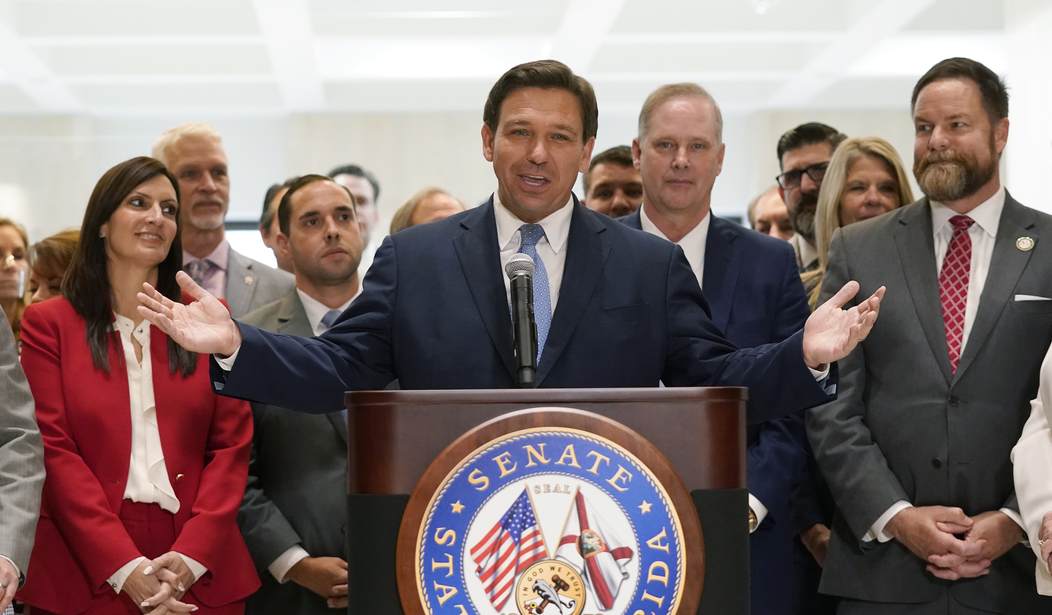Florida Gov. Ron DeSantis (R) on Monday signed into a law a bill designed to prevent social media companies from engaging in biased censorship practices. This hotly-anticipated legislation seems to be the opening salvo in what will be a fiery debate on the issue of censorship. Other states are expected to follow suit, which could mean that a huge legal battle is in the offing.
The legislation would prohibit social media platforms like Facebook and Twitter from banning state and local political candidates. It would levy penalties of $250,000 per day for any statewide candidate who is removed from the platform. Banning local candidates would incur a penalty of $25,000 per day.
The measure would also require social media companies to provide users with seven days’ notice informing them they are about to be suspended. During this time period, the user would be given a chance to remedy the behavior that is likely to get them removed from the platform.
The Washington Examiner reported:
James O’Keefe, a conservative activist and the founder of Project Veritas, was behind DeSantis when he announced the social media bill signing on Monday. O’Keefe recently sued Twitter for defamation, claiming that the social media giant falsely accused him of creating fake accounts in order to justify banning him from the platform.
Lawmakers in Texas, Arizona, and North Dakota have also introduced bills that mandate greater transparency regarding content moderation and prevent social media platforms from canceling conservative speech.”
DeSantis released a statement declaring that “If Big Tech censors enforce rules inconsistently, to discriminate in favor of the dominant Silicon Valley ideology, they will now be held accountable.”
Of course, the bill is not without its critics. People on both the left and the right have expressed opposition to the new legislation, arguing that it is unconstitutional.
Carl Szabo, vice president of NetChoice, told the Washington Examiner:
This bill abandons conservative values, violates the First Amendment, and would force websites to host antisemitic, racist, and hateful content.”
Right-leaning lawyers argue that this type of law might have unintended consequences, such as changing their guidelines to “restrict more content out of an abundance of caution,” according to the Examiner.
“Content moderation is crucial to an internet that is safe and valuable for families and Floridian small businesses, but this bill would undermine this important ecosystem,” Szabo, who also teaches internet law at George Mason University, argued.
In a statement, Szabo also pointed out that this move could make it easier for individuals or entities to post illicit content on these platforms: “If this law could somehow be enforced, it would allow lawful but awful user posts including pornography, violence, and hate speech that will make it harder for families to safely navigate online,” he said, adding: “By forcing websites to host speech, this bill takes us closer to a state-run internet where the government can cherry pick winners and losers.”
As stated previously, this is just the beginning of what will be an impassioned debate on social media censorship. Florida’s law, along with any similar legislation passed in other states, is sure to be contested in the courts. Indeed, both sides are likely gearing up for the conflict that is to come. In the meantime, however, will the Sunshine State’s new measures prompt Twitter and Facebook to alter their practices? Or is Szabo right in claiming that they will simply make their guidelines tougher? Only time will tell.














Join the conversation as a VIP Member